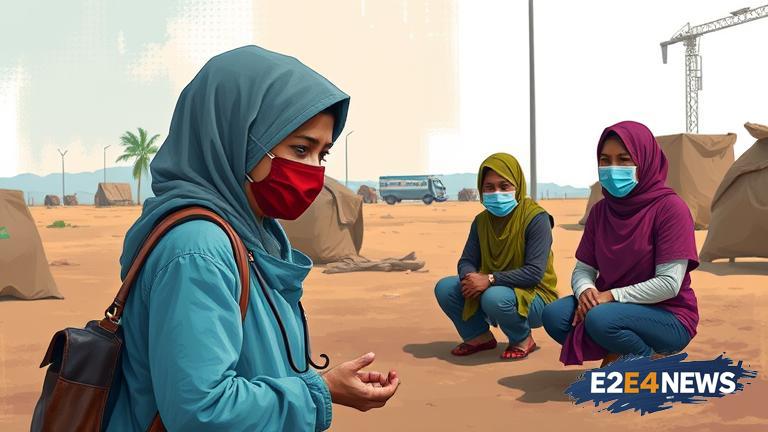In a disturbing turn of events, Operation Dudula, a self-proclaimed anti-immigrant movement, has been blockading clinics and healthcare facilities, effectively denying migrants access to essential medical services. This development has sparked widespread concern among human rights organizations, healthcare professionals, and the general public. The blockades, which have been reported in various parts of the country, have affected at least 53 clinics, leaving thousands of migrants without access to vital healthcare. The situation is particularly dire for vulnerable individuals, including pregnant women, children, and those with chronic illnesses. The blockades have also disrupted the distribution of essential medications, including antiretroviral therapy for HIV patients. Furthermore, the lack of access to healthcare has exacerbated the risk of disease transmission, including COVID-19 and tuberculosis. The South African government has been criticized for its slow response to the crisis, with many calling for immediate action to ensure that migrants have access to healthcare. The African Centre for Migration and Society has condemned the blockades, stating that they are a clear violation of human rights and international law. The organization has also emphasized the importance of ensuring that all individuals, regardless of their nationality or immigration status, have access to essential healthcare services. The blockades have also had a significant impact on the mental health of migrants, with many reporting feelings of anxiety, fear, and trauma. In addition, the blockades have disrupted the livelihoods of migrants, many of whom rely on informal employment to support themselves and their families. The South African Human Rights Commission has launched an investigation into the blockades, citing concerns about the impact on human rights and the rule of law. The commission has also emphasized the importance of promoting social cohesion and addressing the root causes of xenophobia and anti-immigrant sentiment. Meanwhile, healthcare professionals have spoken out against the blockades, emphasizing the importance of providing medical care to all individuals, regardless of their nationality or immigration status. The South African Medical Association has condemned the blockades, stating that they are a clear violation of medical ethics and the principles of humanity. The association has also emphasized the importance of ensuring that all individuals have access to essential healthcare services, including reproductive healthcare and mental health services. In response to the crisis, several organizations have launched initiatives to provide alternative healthcare services to migrants, including mobile clinics and community-based health programs. However, these initiatives are limited in scope and cannot replace the comprehensive healthcare services provided by the public healthcare system. The crisis has also highlighted the need for a more comprehensive and inclusive approach to healthcare, one that prioritizes the needs of all individuals, regardless of their nationality or immigration status. Ultimately, the blockades have underscored the importance of promoting social cohesion, addressing the root causes of xenophobia and anti-immigrant sentiment, and ensuring that all individuals have access to essential healthcare services.
